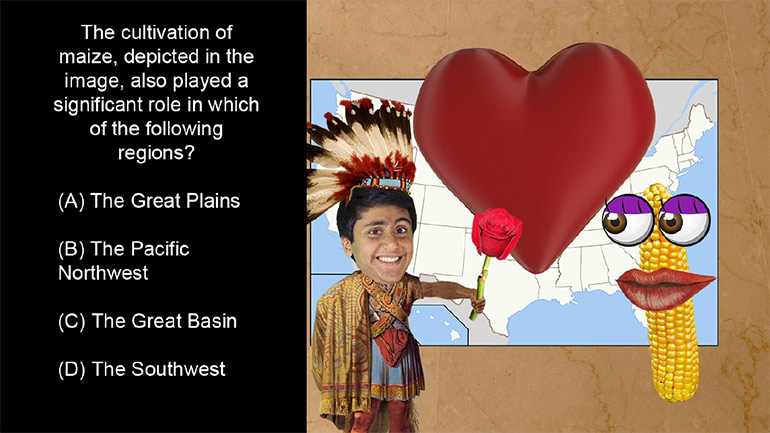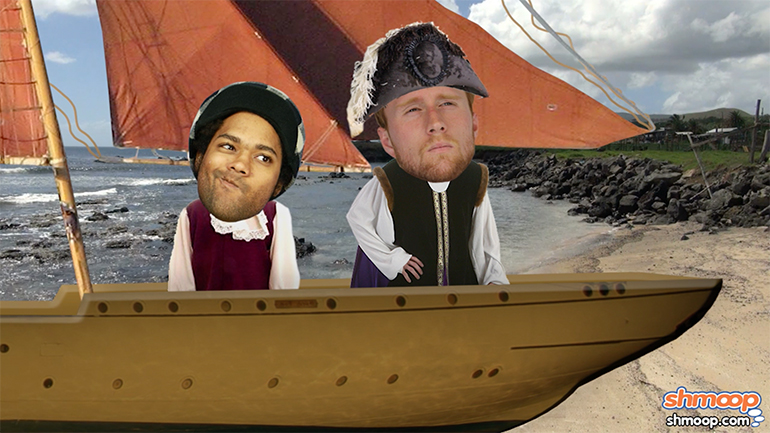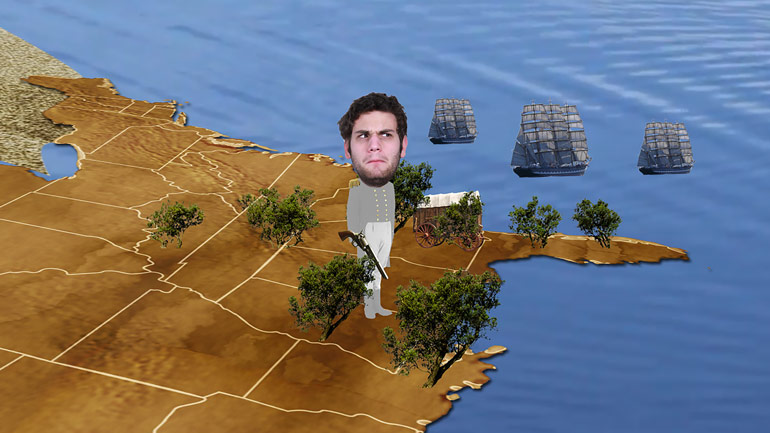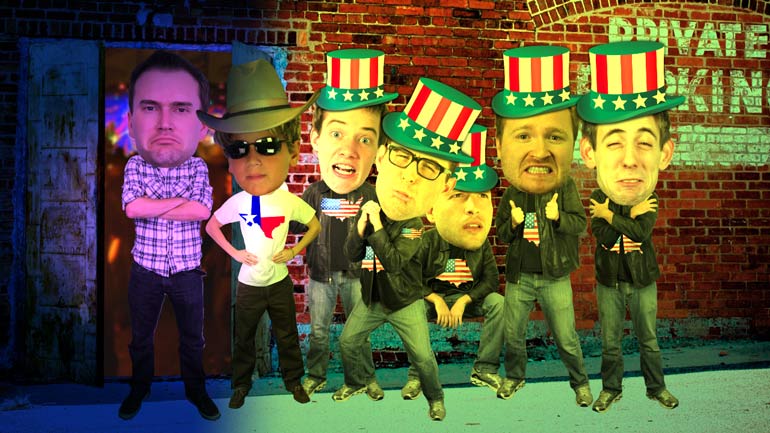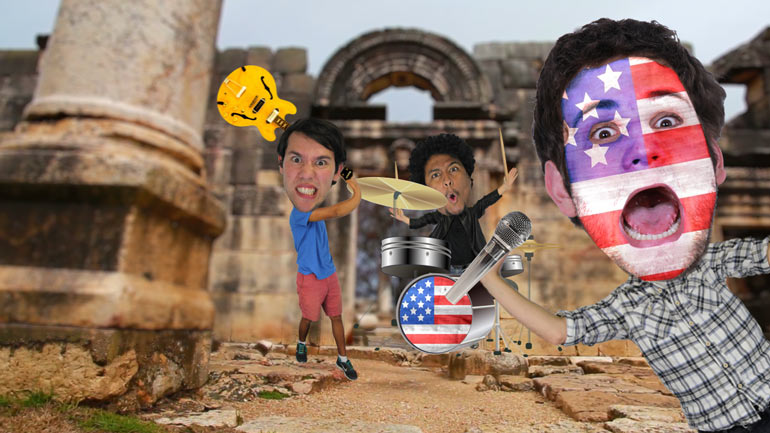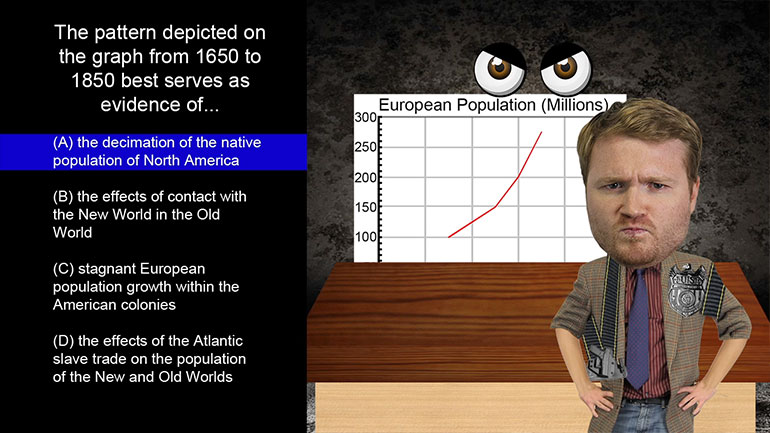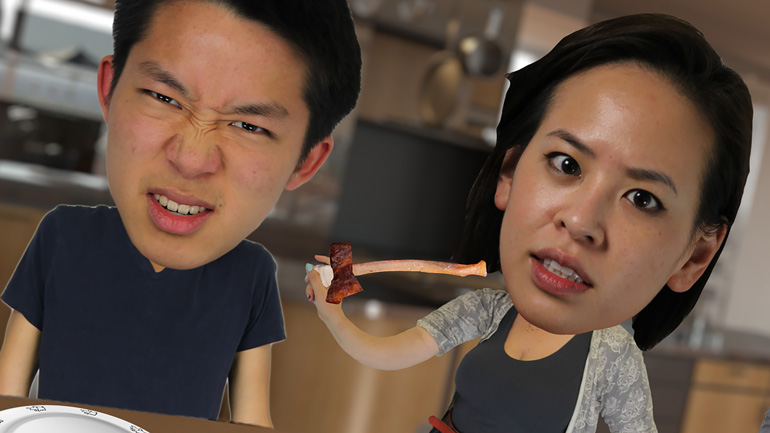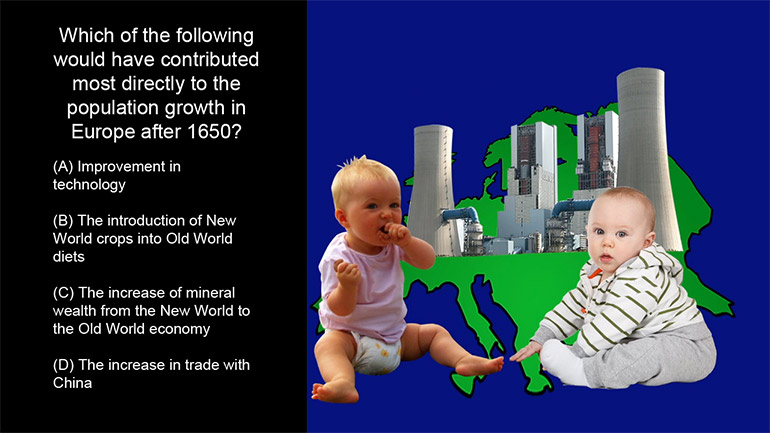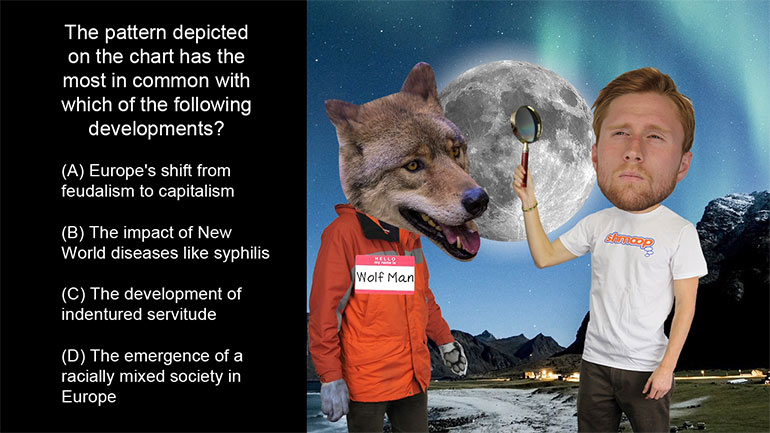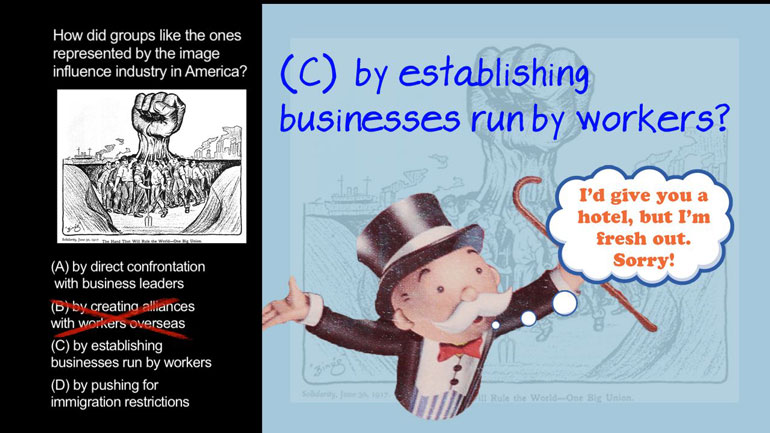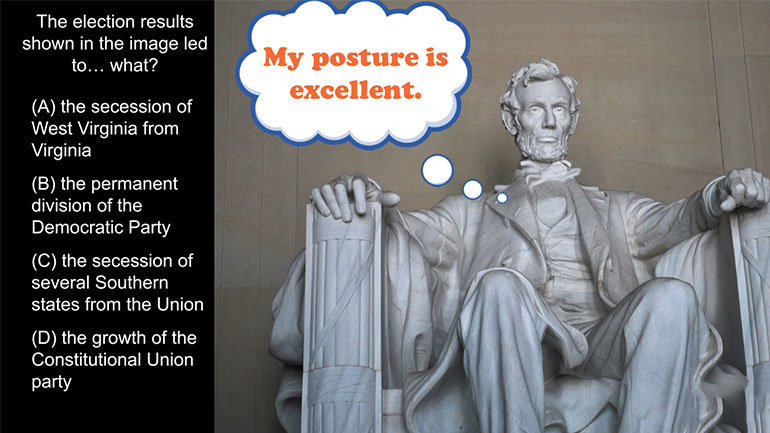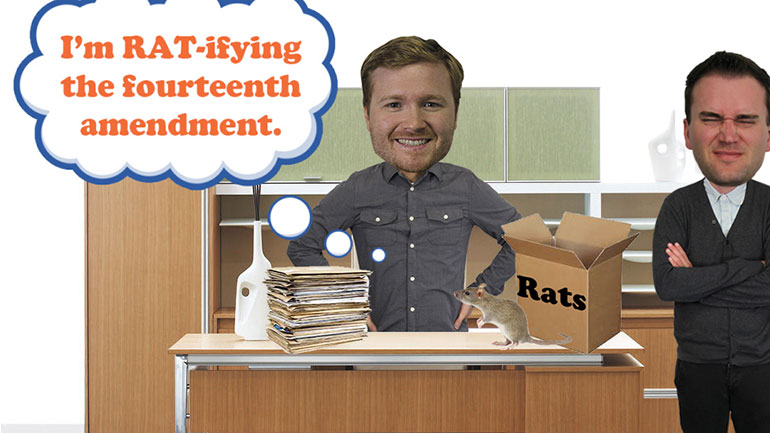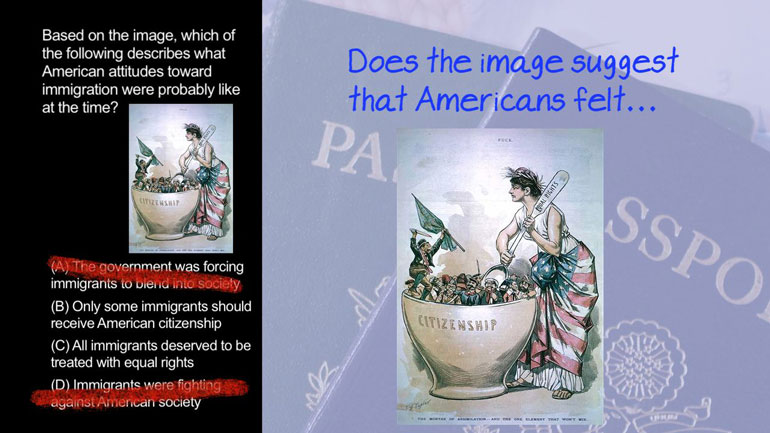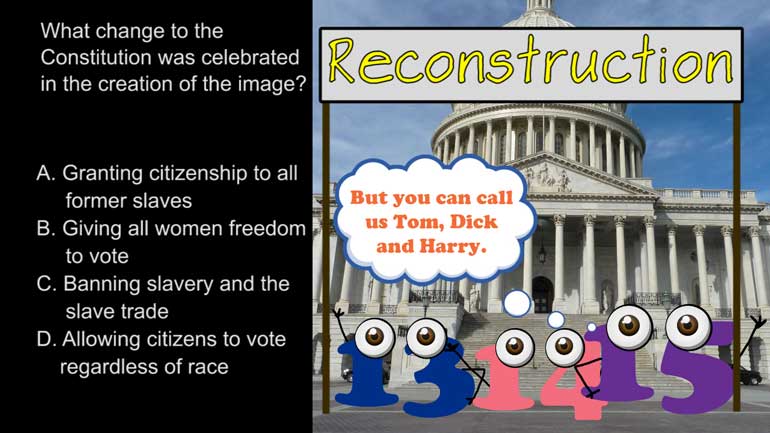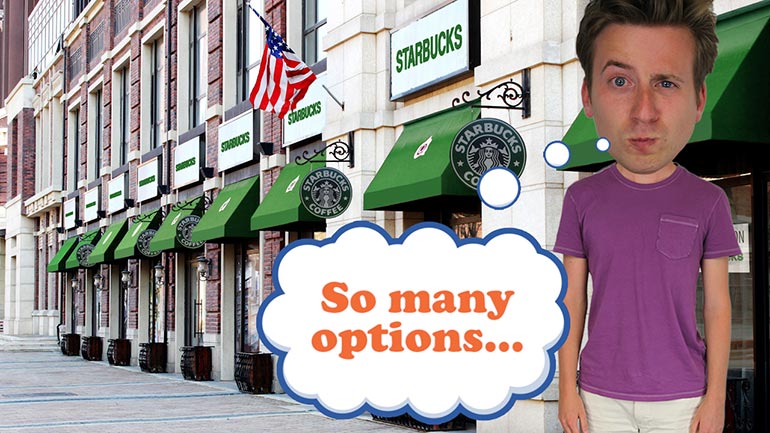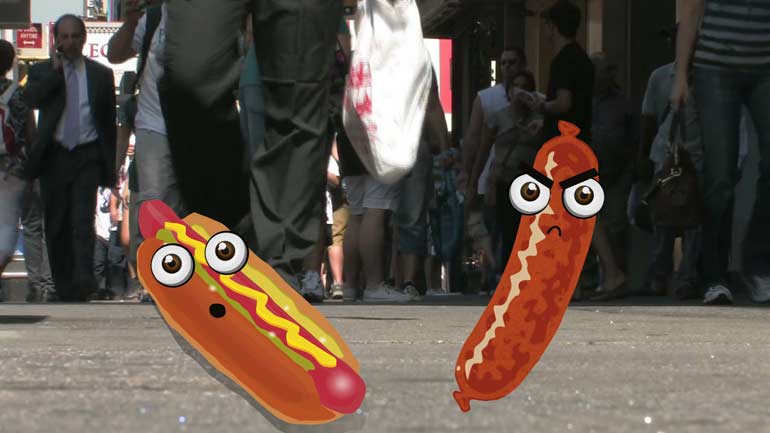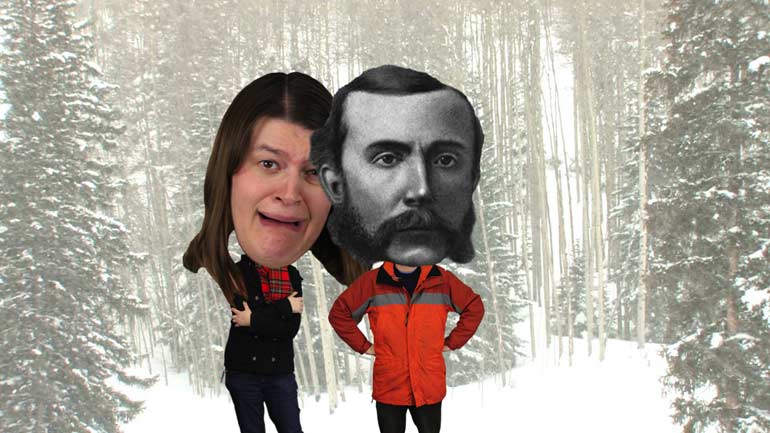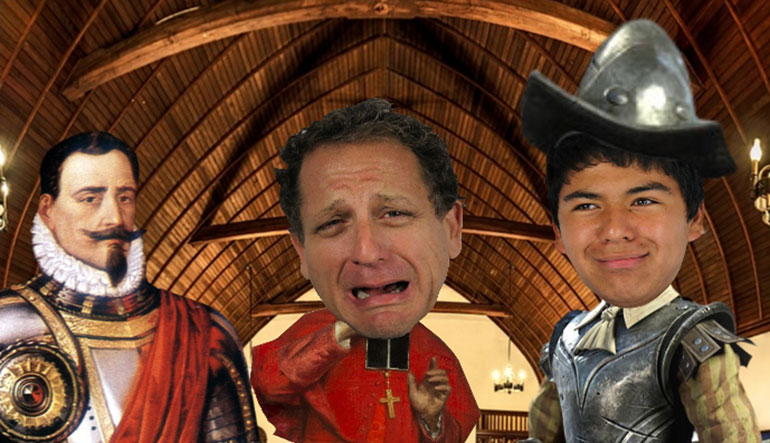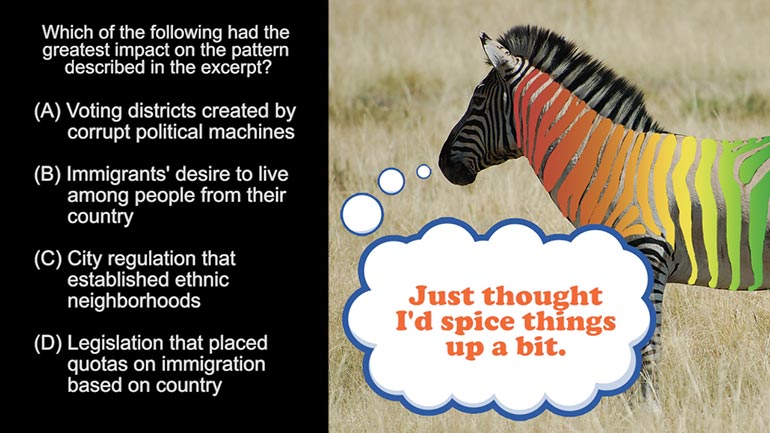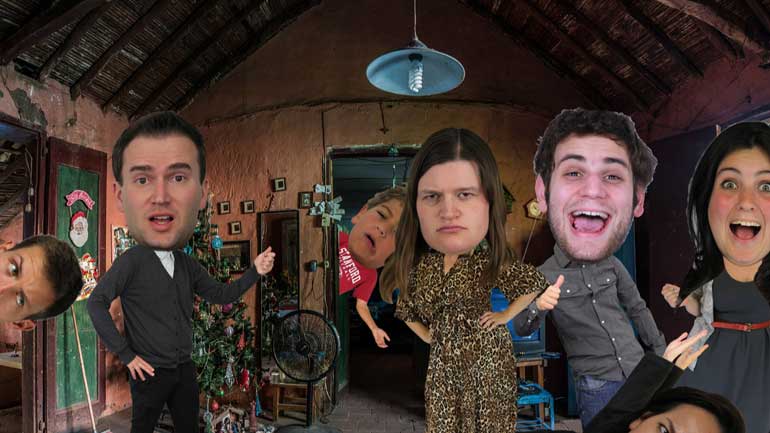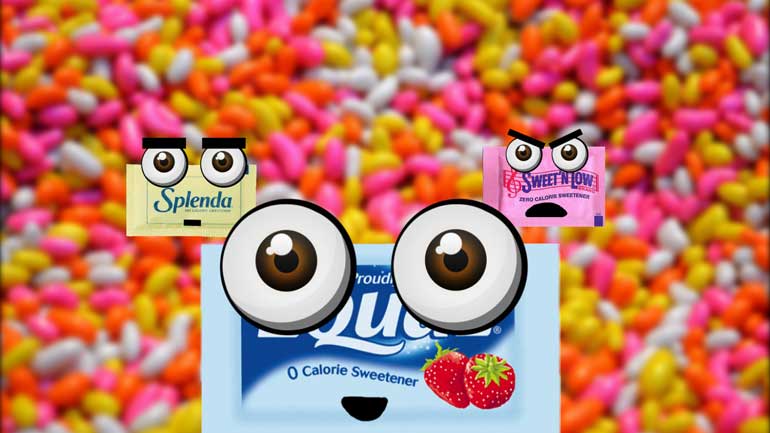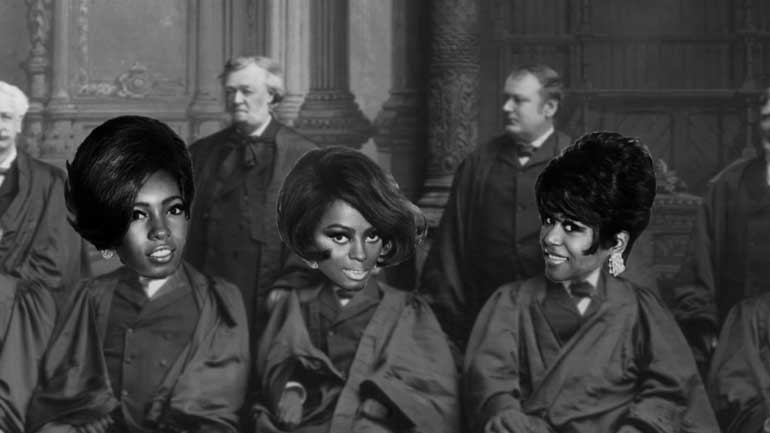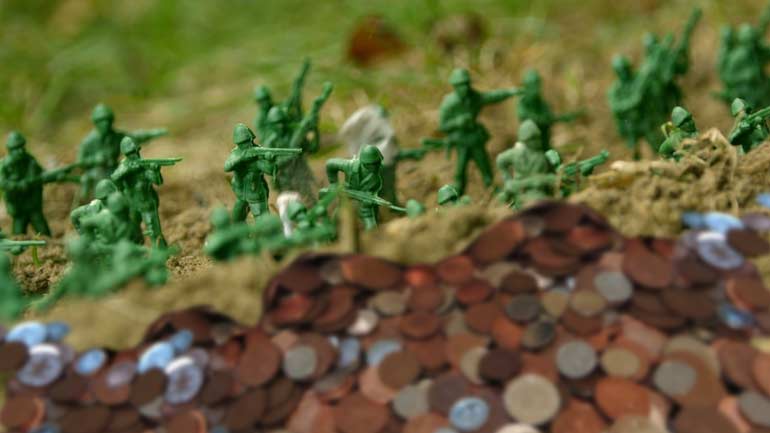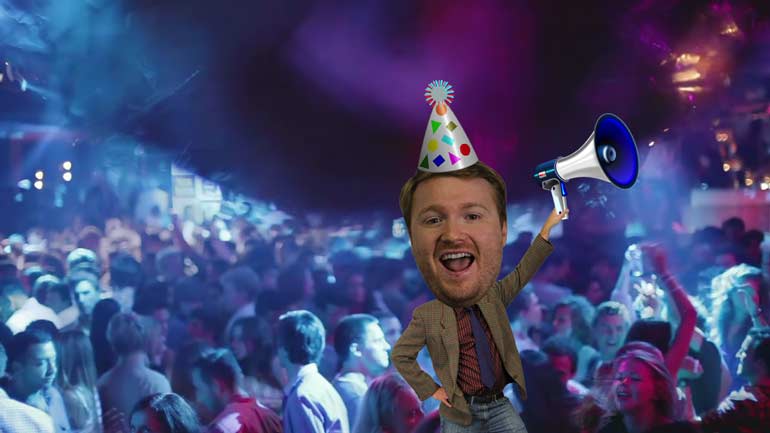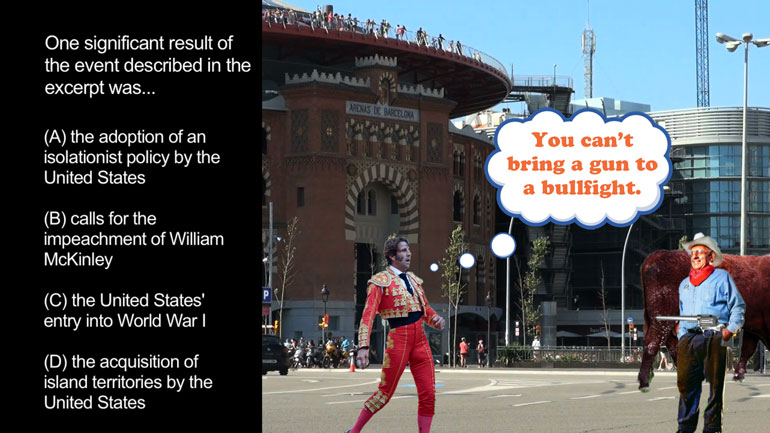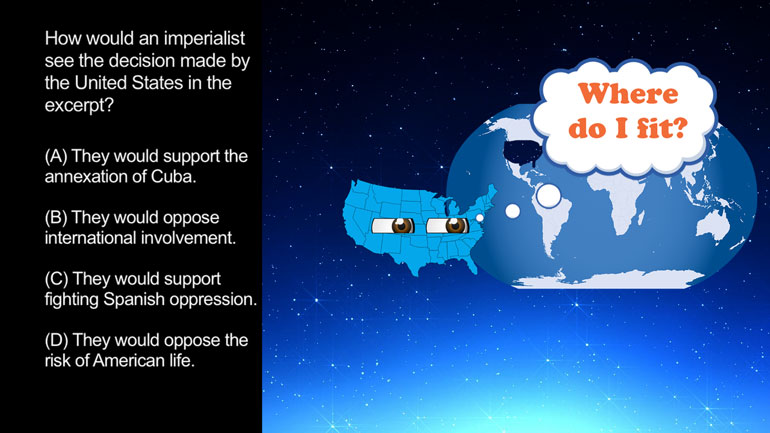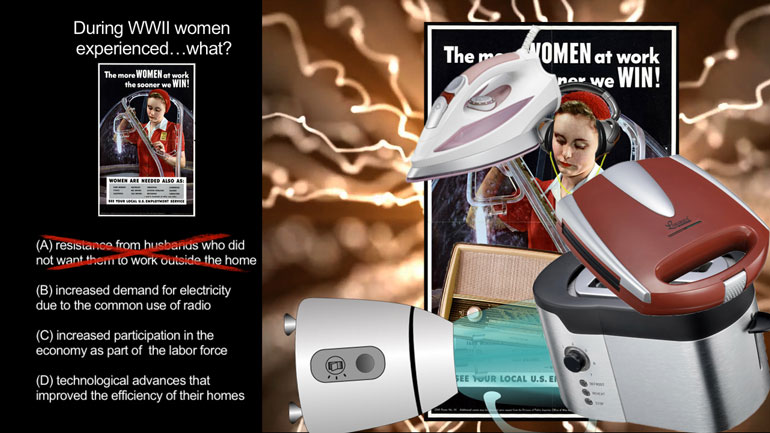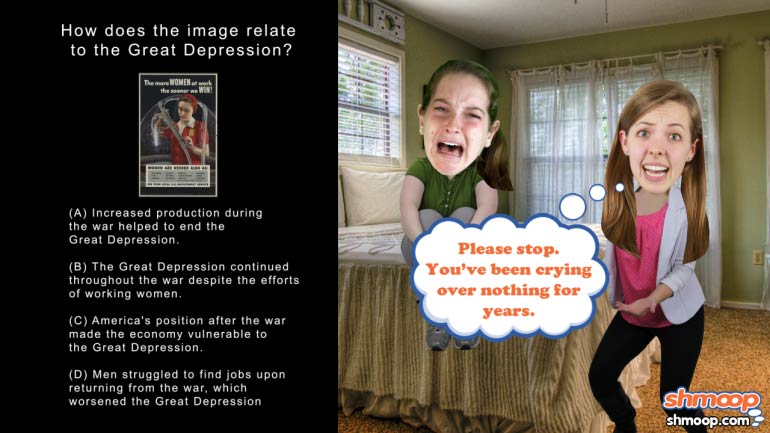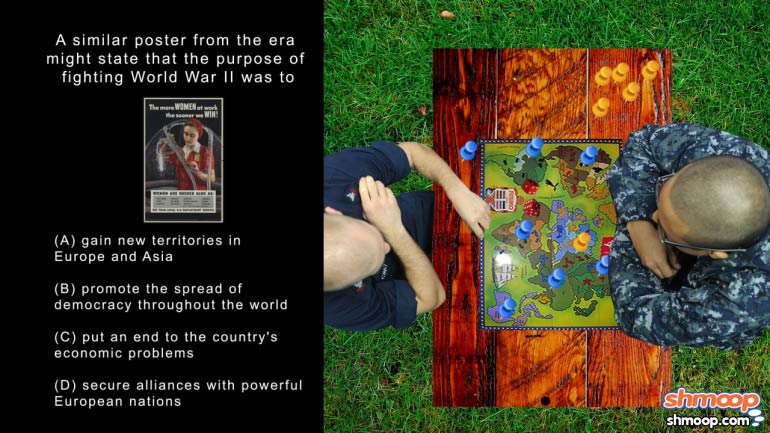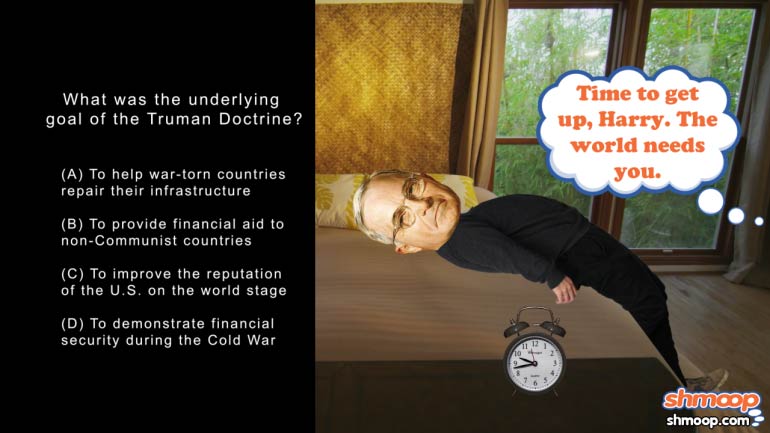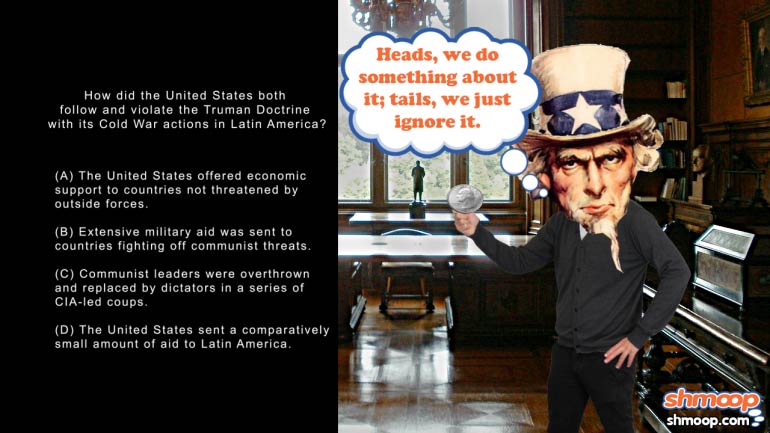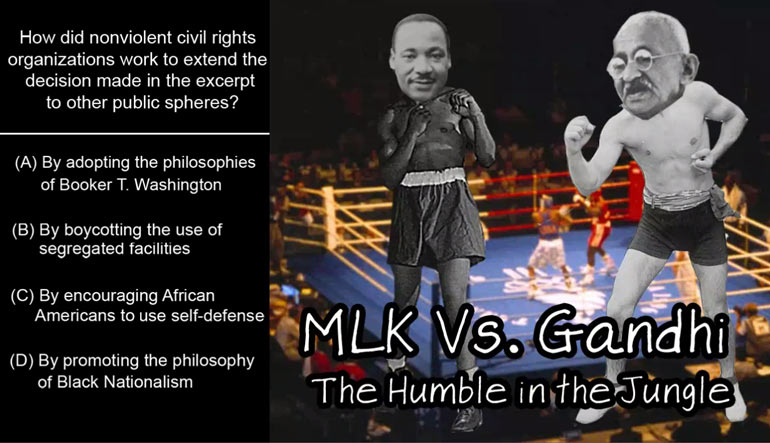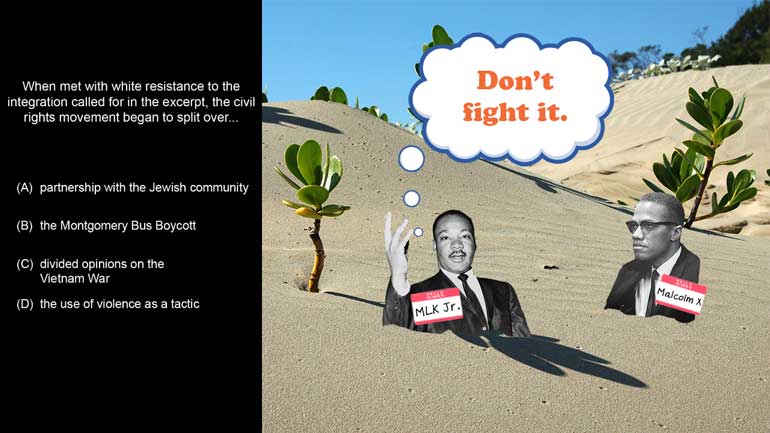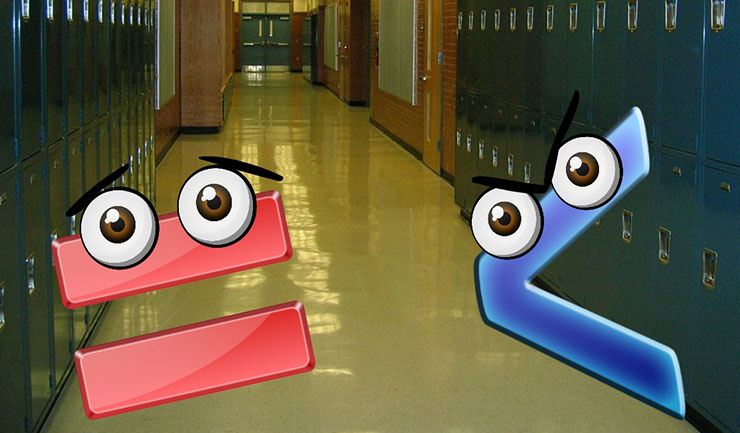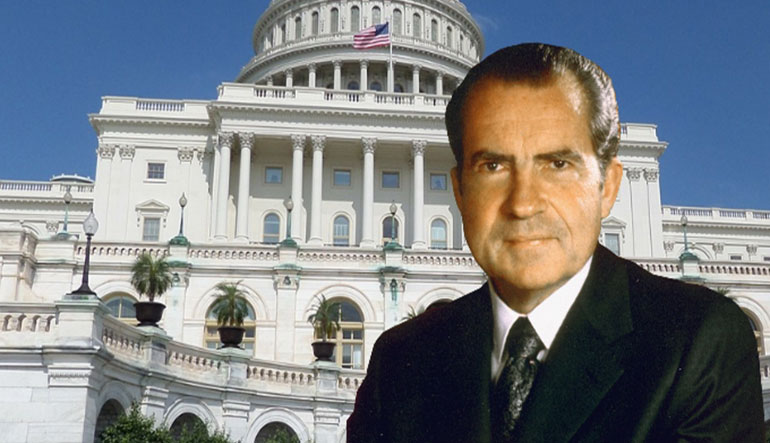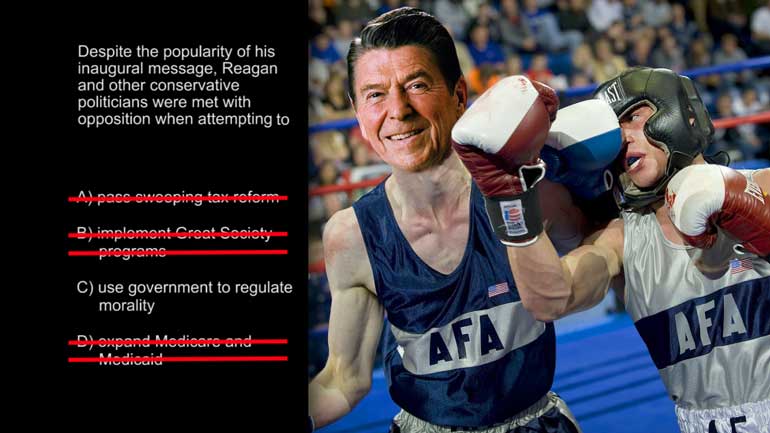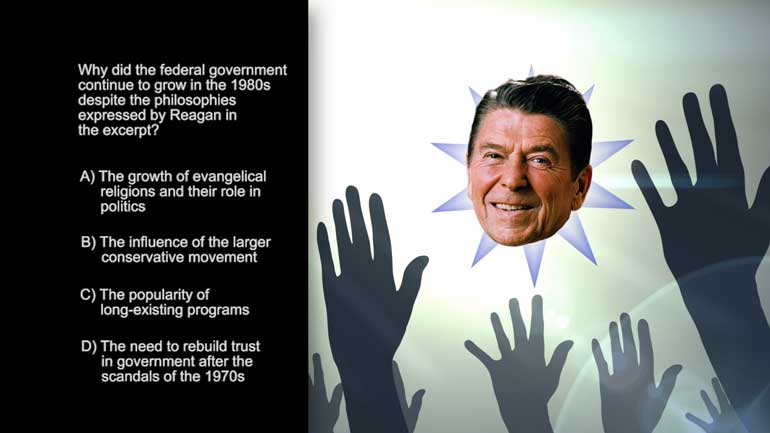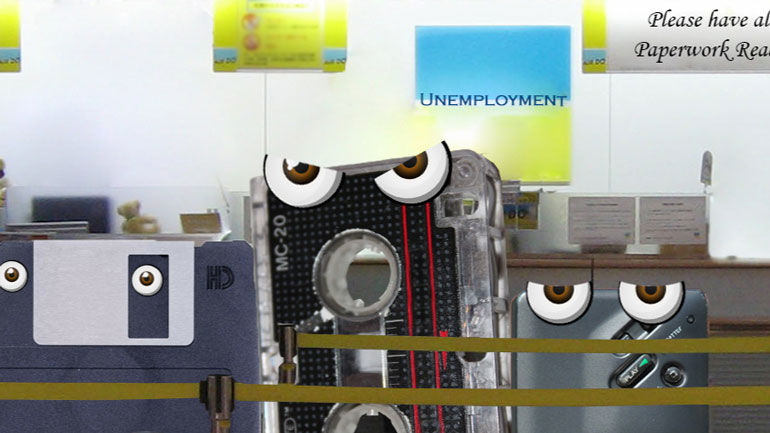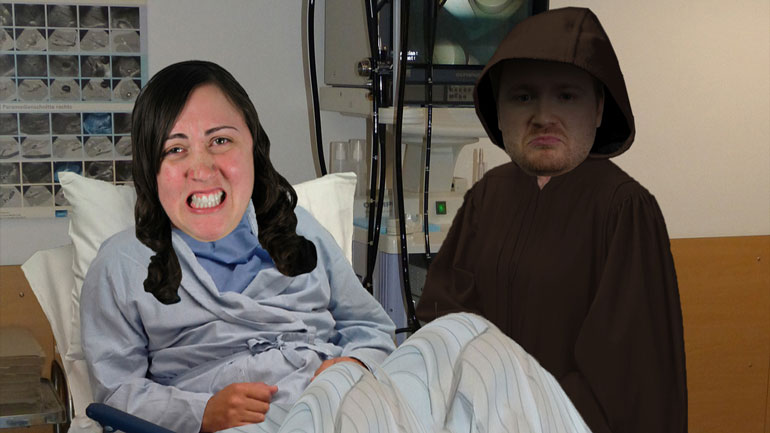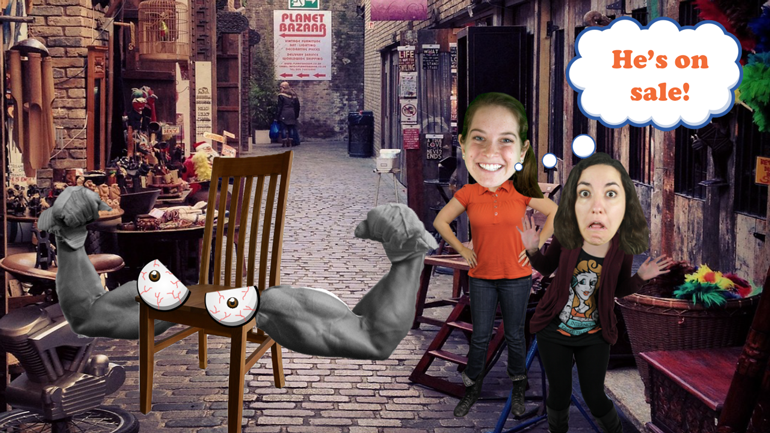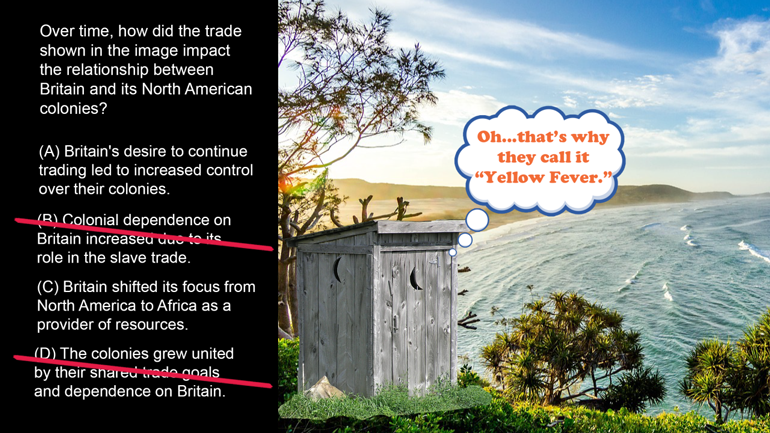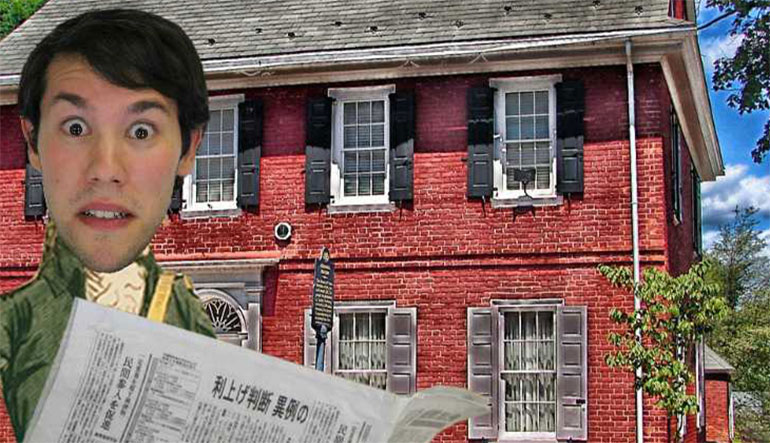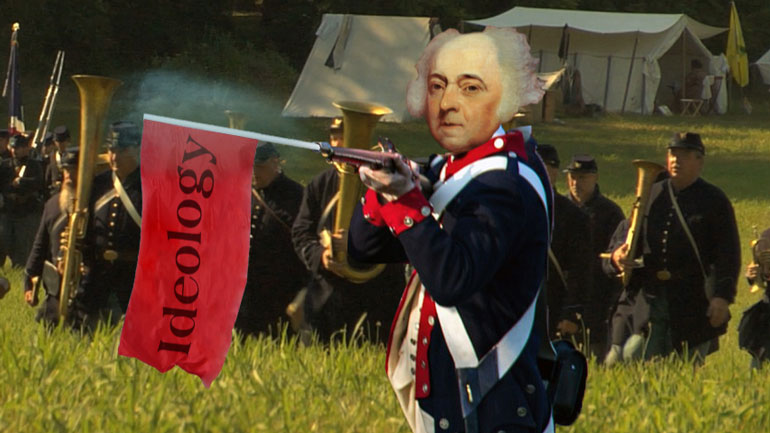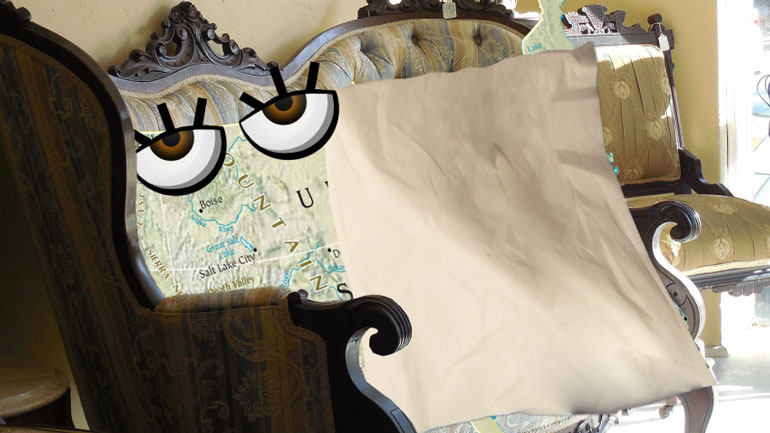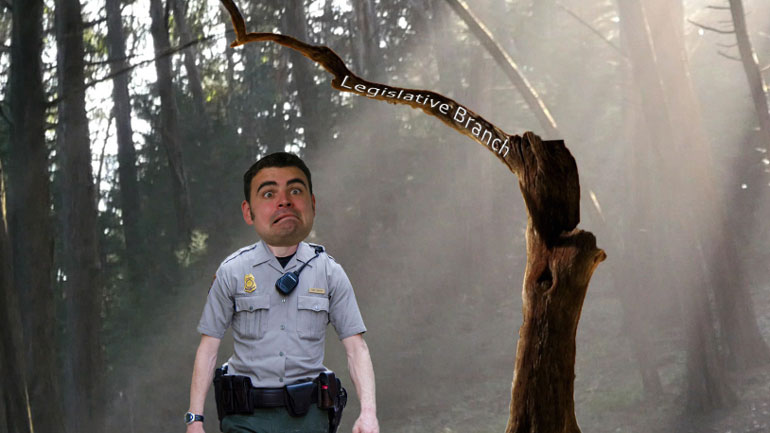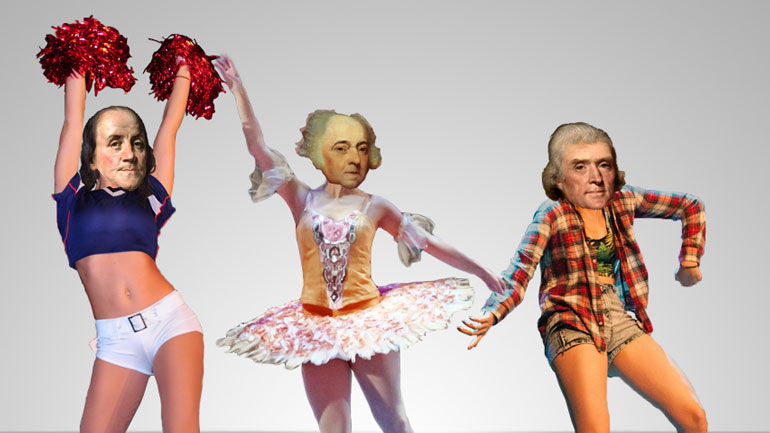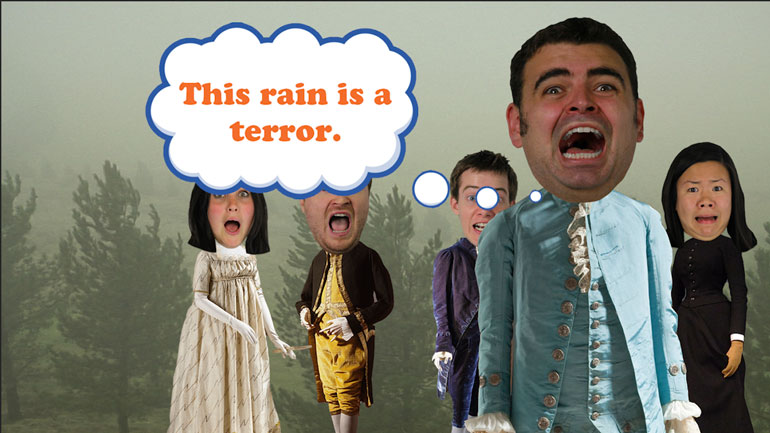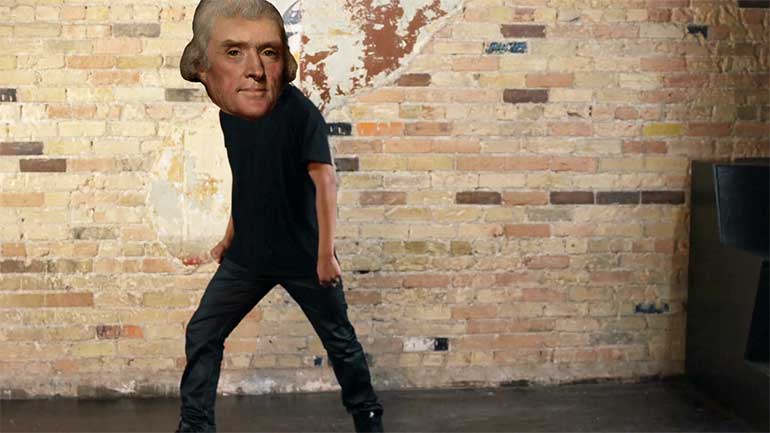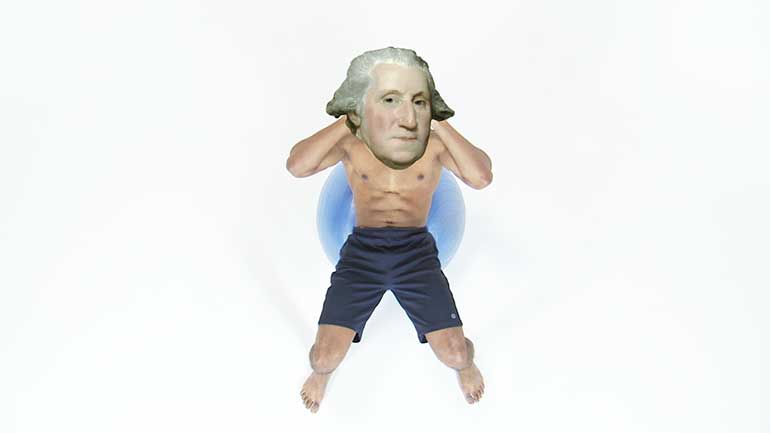ShmoopTube
Where Monty Python meets your 10th grade teacher.
Search Thousands of Shmoop Videos
AP U.S. History Videos 167 videos
AP U.S. History 3.1 Period 2: 1607-1754. Which of the following contributed most directly to the process seen in the image?
AP U.S. History Period 1: 1491-1607 Drill 3, Problem 2. The cultivation of maize, depicted in the image, also played a significant role in which of...
AP U.S. History 3.2 Period 4: 1800-1848. The goals presented in the excerpt have the most in common with which of the following?
AP U.S. History Diagnostic 18 174 Views
Share It!
Description:
AP U.S. History Diagnostic 18. What shift in the United States economy is represented by the image?
Transcript
- 00:00
[ musical flourish ]
- 00:03
And here's your Shmoop du jour, brought to you by radio waves,
- 00:06
a friendly hello to faraway friends.
- 00:09
[ sings note ] Yeah, like that. All right.
- 00:12
What shift in the United States economy is represented by the image?
Full Transcript
- 00:15
And we promise to not sing anymore in this video.
- 00:18
And here are your potential answers.
- 00:20
[ mumbles ]
- 00:24
All right. At first the Industrial Revolution affected the production
- 00:28
of practical goods like clothing and machinery.
- 00:31
But technological advancements tend to have a ripple effect.
- 00:34
So let's see which answer best describes
- 00:36
the economic echo revealed in this ad for radios.
- 00:40
Was the shift in the United States economy
- 00:42
represented by the image A -
- 00:45
a larger focus on the service industry? Hmm.
- 00:48
Well, the caption for the image says it's from the 1920s,
- 00:52
and a growing service industry as well as
- 00:54
increased competition between businesses didn't really take
- 00:57
form until after World War II.
- 00:59
That's like mid/late 40s.
- 01:01
So that knocks out A and B.
- 01:03
Does this ad for radios reveal
- 01:05
D - the need for businesses to be open longer hours?
- 01:10
Well, they must have beamed this one in from outer space,
- 01:12
because it's far, far away from the right answer.
- 01:14
Which means that the shift in the U.S. economy
- 01:17
revealed by the image is C -
- 01:20
a move toward the production of consumer goods.
- 01:23
Following increased production of practical items,
- 01:26
the Industrial Revolution's next leap forward was
- 01:29
creating consumer goods,
- 01:31
like sewing machines and radios,
- 01:33
which were aimed at making life easier for people across the country.
- 01:36
So C is the right answer.
- 01:38
However, with all these new items suddenly available for purchase,
- 01:41
many shoppers found themselves struggling with some newfound side effects:
- 01:45
decision fatigue, wallet pain, and worst of all,
- 01:48
consumption.
- 01:49
[ flat line beep ]
- 01:53
[ cash register cha-ching ]
Related Videos
Ever heard of a "living document"? They eat and breathe just like the rest of us! They even walk around on their own two legs. Okay, fine—maybe t...
If the Puritans had gotten their way, religion would play a much larger role in lawmaking these days. Want to know more? Watch the video for all th...
What happened between the creation of the Articles of Confederation and the ratification of the current U.S. Constitution? This video analyzes the...
The Modernists thought the world had a lot of problems, and they were intent on fixing them—or at least talking about fixing them. Unfortunately,...
This video explains Federalism and the quest for a fair balance between state and national power. It covers the progression and compromises of Fede...

